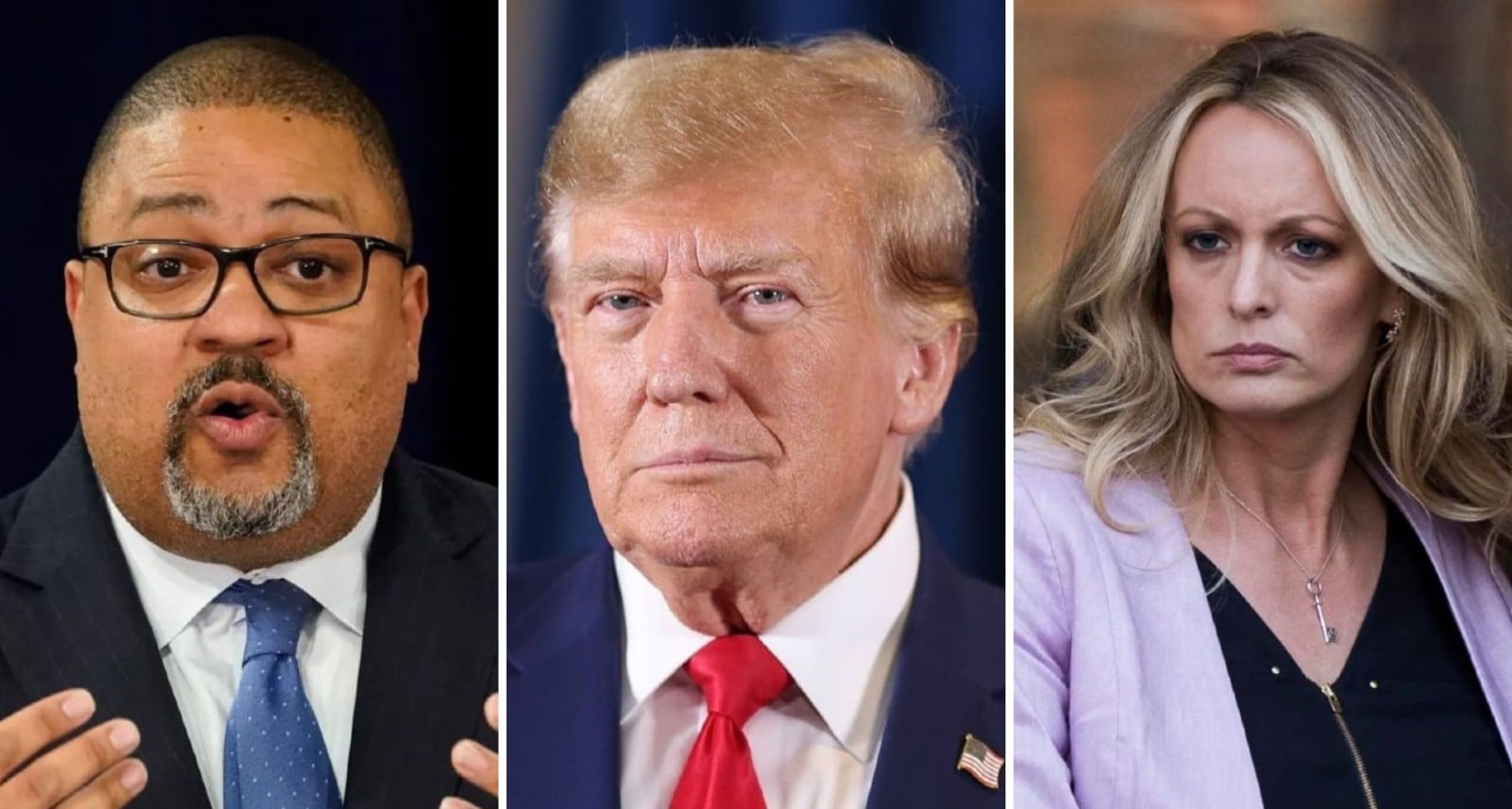OPINION: This article may contain commentary which reflects the author's opinion.
The jury has delivered the historic verdict in former President Donald Trump’s “hush money” trial in Manhattan, New York.
The jury has found Trump guilty on all 34 counts.
The judge has scheduled a sentencing hearing for July 11.
BREAKING 🚨: PRESIDENT DONALD J. TRUMP HAS BEEN FOUND GUILTY ON ALL 34 COUNTS BY THE JURY. pic.twitter.com/vfPTV6Jf9J
— Anthony Cabassa (@AnthonyCabassa_) May 30, 2024
BREAKING.🚨
Here are the 34 felony counts that came in as GUILTY against former President Donald J. Trump. pic.twitter.com/mZg7EGSuw5
— Kyle Becker (@kylenabecker) May 30, 2024
Trump could face 4 years in prison?!? pic.twitter.com/bVQMPWmRk6
— Chief Nerd (@TheChiefNerd) May 30, 2024
🚨 JUST IN: A New York jury has found former President Donald Trump GUILTY on all counts in his New York hush-money trial: pic.twitter.com/vx51Or81ZM
— Conservative War Machine (@WarMachineRR) May 30, 2024
A defense attorney who appeared as a legal analyst on CNN Tuesday following closing arguments in Trump’s hush money trial said he doesn’t believe District Attorney Alvin Bragg’s prosecutors proved their case.
“The burden of proof is an important one to remind everyone: It’s on the prosecution, right? They need to prove beyond reasonable doubt that he committed — that Donald Trump broke the law. And you think after listening to all of this, you think they fell short. How?” the network’s Kate Bolduan asked attorney Randy Zelin.
“They fell way short, because let’s start with reasonable doubt,” Zelin responded. “What is reasonable doubt? And it’s not simply a doubt based upon reason. Any time a human being needs to make an important decision in life, if you have enough information, for example, doctor says you need open heart surgery. ‘Doc, go ahead and schedule. I don’t have a reasonable doubt.’ Conversely, if I say ‘I appreciate it, but I need a second opinion, I need more information,’ that is having a reasonable doubt. There is reasonable doubt all over this case.”
He added:
Where is Keith Schiller? Where is Allen Weisselberg? How did Michael Cohen get away with stealing $30,000? Hold a pity party for him — made $4 million on this, thought he’d be chief of staff. He’s a fixer! If the plumber comes to my house to fix my leak, I could be home. That doesn’t mean I know how he’s doing it and what it’s taking to be fixed.
Stormy Daniels, let’s hold a pity party for her. Why do we need to know whether or not the former president wore a condom or not? It’s simply about: Did the former president know that books, his records, false entries for legal fees — Michael Cohen was his lawyer — getting intent to cover up the election or to protect his family? It’s everywhere. Everywhere!
Noted legal expert and Georgetown Law School professor Jonathan Turley said on Monday that Bragg’s prosecutors did not make a convincing case against Trump in his hush money trial, so jurors should find him “not guilty.”
In an op-ed for the New York Post, Turley asserted that Trump’s defense lawyers “are in a rather curious position” because they are not certain exactly what crimes they are defending their clients against since prosecutors did not clearly state what laws he allegedly violated.
“Even liberal legal analysts admitted that they could not figure out what was being alleged in [District Attorney Alvin] Bragg’s indictment. Now, after weeks of trial, the situation has changed little,” Turley wrote, adding that Judge Juan Merchan has even instructed jurors they do “not have to agree on what that crime is.”
“The jury has been given little substantive information on these crimes, and Merchan has denied a legal expert who could have shown that there was no federal election violation,” he added.
Turley then compared Trump’s case — and every legal case — to a three-legged stool, writing that should “any leg is missing, the stool collapses”:
–Falsification of records
–Secondary crime
–Criminal intent
Regarding alleged falsification, defense witnesses made it clear during their testimony that it was an antiquated system that labeled payments as “legal expenses,” and “there was no evidence that Trump knew of how the payments were denoted,” Turley wrote.
As for a secondary crime, there isn’t any, Turley said: “The defense has to hammer away on the fact that no one has testified that it was a federal campaign violation.”
The prosecution relied heavily on Cohen’s testimony to show criminal intent, “yet even Cohen did not offer a clear basis for showing a criminal intent to use unlawful means to influence the election,” Turley wrote. To be sure, after defense attorneys discredited Cohen, the only real crime he could even attest to was stealing $60,000 from the Trump Organization, the professor said.
